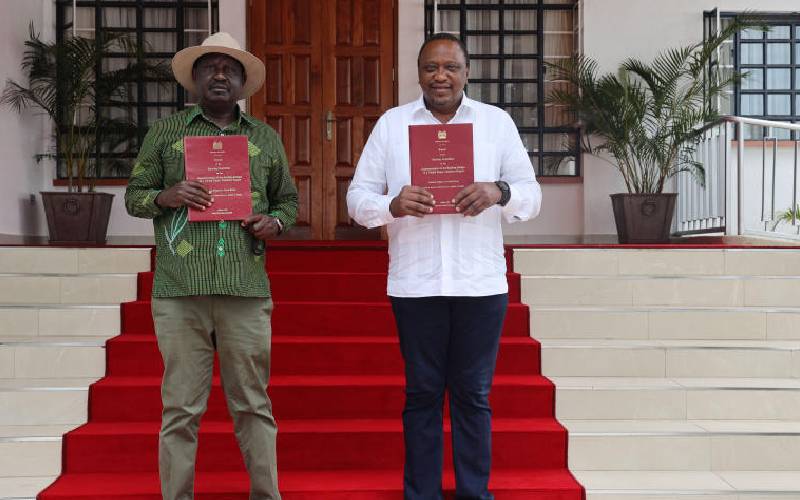
The decision of a five-judge Bench of the High Court delivered on Thursday to the effect that the Constitution of Kenya (Amendment) Bill, 2020 popularly known as the BBI Bill is null and void marks a watershed and turning point for the agenda of the ‘handshake’ and the impending succession of President Uhuru Kenyatta.
Besides the fact that the 321-page judgement was delivered over five hours with poignant aplomb, relish and caustic tone, the decision is remarkable not only because of the devastating blow it dealt to the BBI process, but the numerous shortcomings pointed out by the learned judges and the extent they went to demonstrate that the initiative has no redeeming value. In many ways the judgement was done in such a way that any higher court cannot reverse it entirely without the appellate judges looking pretty bad, and appear to be sucking up to the Executive.